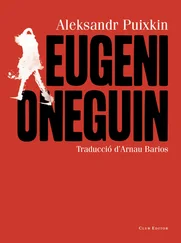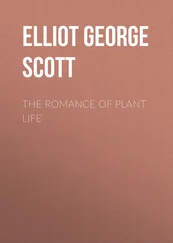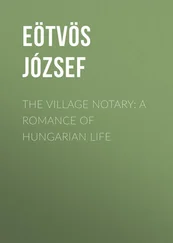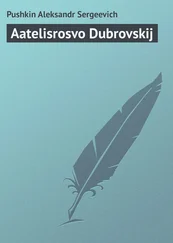Aleksandr Pushkin - Eugene Oneguine [Onegin]. A Romance of Russian Life in Verse
Здесь есть возможность читать онлайн «Aleksandr Pushkin - Eugene Oneguine [Onegin]. A Romance of Russian Life in Verse» весь текст электронной книги совершенно бесплатно (целиком полную версию без сокращений). В некоторых случаях можно слушать аудио, скачать через торрент в формате fb2 и присутствует краткое содержание. Год выпуска: 2007, Жанр: Поэзия, на английском языке. Описание произведения, (предисловие) а так же отзывы посетителей доступны на портале библиотеки ЛибКат.
- Название:Eugene Oneguine [Onegin]. A Romance of Russian Life in Verse
- Автор:
- Жанр:
- Год:2007
- ISBN:нет данных
- Рейтинг книги:4 / 5. Голосов: 1
-
Избранное:Добавить в избранное
- Отзывы:
-
Ваша оценка:
- 80
- 1
- 2
- 3
- 4
- 5
Eugene Oneguine [Onegin]. A Romance of Russian Life in Verse: краткое содержание, описание и аннотация
Предлагаем к чтению аннотацию, описание, краткое содержание или предисловие (зависит от того, что написал сам автор книги «Eugene Oneguine [Onegin]. A Romance of Russian Life in Verse»). Если вы не нашли необходимую информацию о книге — напишите в комментариях, мы постараемся отыскать её.
Eugene Oneguine [Onegin]. A Romance of Russian Life in Verse — читать онлайн бесплатно полную книгу (весь текст) целиком
Ниже представлен текст книги, разбитый по страницам. Система сохранения места последней прочитанной страницы, позволяет с удобством читать онлайн бесплатно книгу «Eugene Oneguine [Onegin]. A Romance of Russian Life in Verse», без необходимости каждый раз заново искать на чём Вы остановились. Поставьте закладку, и сможете в любой момент перейти на страницу, на которой закончили чтение.
Интервал:
Закладка:
But I am now another's bride—
For ever faithful will abide."
XLVII
She rose—departed. But Eugene
Stood as if struck by lightning fire.
What a storm of emotions keen
Raged round him and of balked desire!
And hark! the clank of spurs is heard
And Tania's husband soon appeared.—
But now our hero we must leave
Just at a moment which I grieve
Must be pronounced unfortunate—
For long—for ever. To be sure
Together we have wandered o'er
The world enough. Congratulate
Each other as the shore we climb!
Hurrah! it long ago was time!
XLVIII
Reader, whoever thou mayst be,
Foeman or friend, I do aspire
To part in amity with thee!
Adieu! whate'er thou didst desire
From careless stanzas such as these,
Of passion reminiscences,
Pictures of the amusing scene,
Repose from labour, satire keen,
Or faults of grammar on its page—
God grant that all who herein glance,
In serious mood or dalliance
Or in a squabble to engage,
May find a crumb to satisfy.
Now we must separate. Good-bye!
XLIX
And farewell thou, my gloomy friend,
Thou also, my ideal true,
And thou, persistent to the end,
My little book. With thee I knew
All that a poet could desire,
Oblivion of life's tempest dire,
Of friends the grateful intercourse—
Oh, many a year hath run its course
Since I beheld Eugene and young
Tattiana in a misty dream,
And my romance's open theme
Glittered in a perspective long,
And I discerned through Fancy's prism
Distinctly not its mechanism.
L
But ye to whom, when friendship heard,
The first-fruits of my tale I read,
As Saadi anciently averred— [89] The celebrated Persian poet. Pushkin uses the passage referred to as an epigraph to the "Fountain of Baktchiserai." It runs thus: "Many, even as I, visited that fountain, but some of these are dead and some have journeyed afar." Saadi was born in 1189 at Shiraz and was a reputed descendant from Ali, Mahomet's son-in-law. In his youth he was a soldier, was taken prisoner by the Crusaders and forced to work in the ditches of Tripoli, whence he was ransomed by a merchant whose daughter he subsequently married. He did not commence writing till an advanced age. His principal work is the "Gulistan," or "Rose Garden," a work which has been translated into almost every European tongue.
Some are afar and some are dead.
Without them Eugene is complete;
And thou, from whom Tattiana sweet;
Was drawn, ideal of my lay—
Ah! what hath fate not torn away!
Happy who quit life's banquet seat
Before the dregs they shall divine
Of the cup brimming o'er with wine—
Who the romance do not complete,
But who abandon it—as I
Have my Oneguine—suddenly.
End of Canto The Eighth
The End
Примечания
1
Ruslan and Liudmila , the title of Pushkin's first important work, written 1817-20. It is a tale relating the adventures of the knight-errant Ruslan in search of his fair lady Liudmila, who has been carried off by a kaldoon , or magician.
2
Written in Bessarabia.
3
In Russia foreign tutors and governesses are commonly styled "monsieur" or "madame."
4
Referring to Tomi, the reputed place of exile of Ovid.
Pushkin, then residing in Bessarabia, was in the same predicament as his predecessor in song, though he certainly did not plead guilty to the fact, since he remarks in his ode to Ovid:
To exile self-consigned ,
With self, society, existence, discontent,
I visit in these days, with melancholy mind,
The country whereunto a mournful age thee sent.
Ovid thus enumerates the causes which brought about his banishment:
"Perdiderint quum me duo crimina, carmen et error,
Alterius facti culpa silenda mihi est."
Ovidii Nasonis Tristium , lib. ii. 207.
5
Les Aventures du Chevalier de Faublas , a romance of a loose character by Jean Baptiste Louvet de Couvray, b. 1760, d. 1797, famous for his bold oration denouncing Robespierre, Marat and Danton.
6
A la "Bolivar," from the founder of Bolivian independence.
7
M. Breguet, a celebrated Parisian watchmaker—hence a slang term for a watch.
8
Talon, a famous St. Petersburg restaurateur.
9
Paul Petrovitch Kaverine, a friend for whom Pushkin in his youth appears to have entertained great respect and admiration. He was an officer in the Hussars of the Guard, and a noted "dandy" and man about town. The poet on one occasion addressed the following impromptu to his friend's portrait:
"Within him daily see the the fires of punch and war,
Upon the fields of Mars a gallant warrior,
A faithful friend to friends, of ladies torturer,
But ever the Hussar."
10
Denis Von Wisine (1741-92), a favourite Russian dramatist. His first comedy "The Brigadier," procured him the favour of the second Catherine. His best, however, is the "Minor" (Niedorosl). Prince Potemkin, after witnessing it, summoned the author, and greeted him with the exclamation, "Die now, Denis!" In fact, his subsequent performances were not of equal merit.
Jacob Borissovitch Kniajnine (1742-91), a clever adapter of French tragedy.
Simeonova , a celebrated tragic actress, who retired from the stage in early life and married a Prince Gagarine.
Ozeroff , one of the best-known Russian dramatists of the period; he possessed more originality than Kniajnine. "Oedipus in Athens," "Fingal," "Demetrius Donskoi," and "Polyxena," are the best known of his tragedies.
Katenine translated Corneille's tragedies into Russian.
Didelot , sometime Director of the ballet at the Opera at St. Petersburg.
11
Istomina—A celebrated Circassian dancer of the day, with whom the poet in his extreme youth imagined himself in love.
12
In Russia large fires are lighted in winter time in front of the theatres for the benefit of the menials, who, considering the state of the thermometer, cannot be said to have a jovial time of it. But in this, as in other cases, "habit" alleviates their lot, and they bear the cold with a wonderful equanimity.
13
"Tout le monde sut qu'il (Grimm) mettait du blanc; et moi, qui n'en croyait rien, je commencai de le croire, non seulement par l'embellissement de son teint, et pour avoir trouve des tasses de blanc sur la toilette, mais sur ce qu'entrant un matin dans sa chambre, je le trouvais brossant ses ongles avec une petite vergette faite expres, ouvrage qu'il continua fierement devant moi. Je jugeai qu'un homme qui passe deux heures tous les matins a brosser ses ongles peut bien passer quelques instants a remplir de blanc les creux de sa peau." Confessions de J. J. Rousseau
14
Refers to Dictionary of the Academy, compiled during the reign of Catherine II under the supervision of Lomonossoff.
Читать дальшеИнтервал:
Закладка:
Похожие книги на «Eugene Oneguine [Onegin]. A Romance of Russian Life in Verse»
Представляем Вашему вниманию похожие книги на «Eugene Oneguine [Onegin]. A Romance of Russian Life in Verse» списком для выбора. Мы отобрали схожую по названию и смыслу литературу в надежде предоставить читателям больше вариантов отыскать новые, интересные, ещё непрочитанные произведения.
Обсуждение, отзывы о книге «Eugene Oneguine [Onegin]. A Romance of Russian Life in Verse» и просто собственные мнения читателей. Оставьте ваши комментарии, напишите, что Вы думаете о произведении, его смысле или главных героях. Укажите что конкретно понравилось, а что нет, и почему Вы так считаете.











